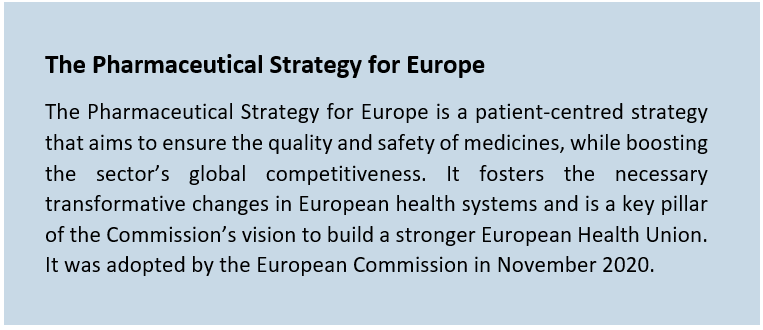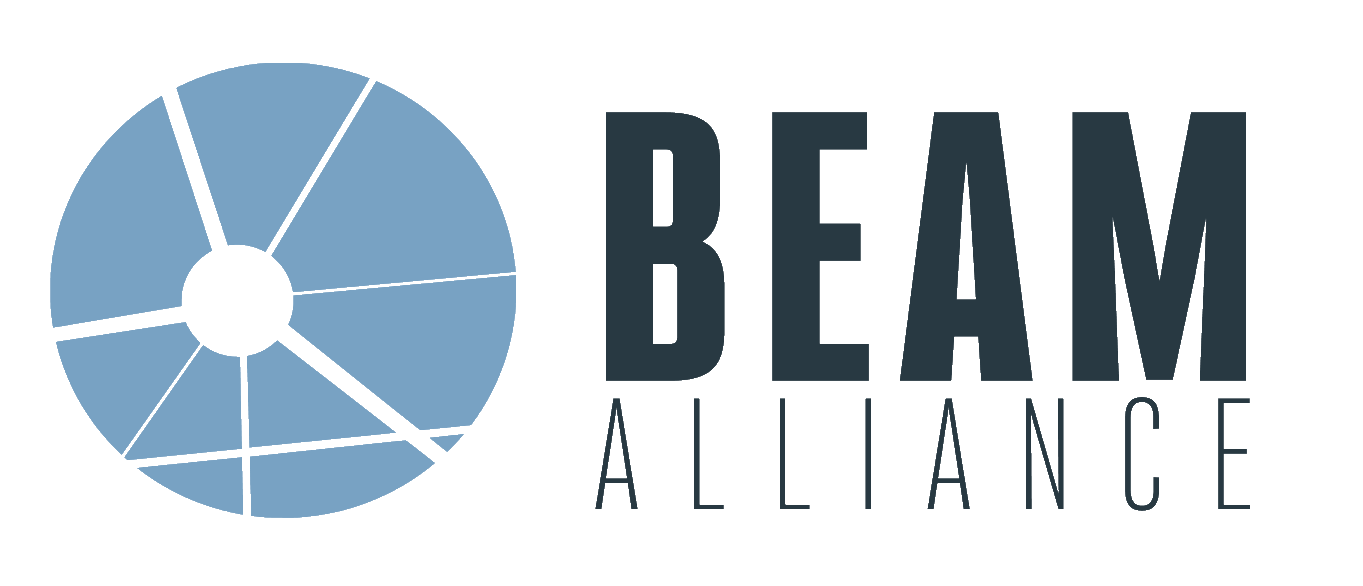How the EU Pharmaceutical Strategy could help prevent the next pandemic
- BEAM Alliance

The threat of Antimicrobial Resistance (AMR) has become more pregnant amidst the COVID-19 crisis. To gain insight on what could be done to help prevent an AMR pandemic, the BEAM Alliance organised a roundtable in June 2021. The discussion shed light on the content of the Pharmaceutical Strategy for Europe, digging into the flagships intended to address the AMR issue. Speakers included policymakers from the EU institutions, academia, industry, and other global stakeholders. Below are the recordings of each session and their key takeaways.

Find out more here: Pharmaceutical Strategy for Europe & BEAM’s reflection paper
Innovation in the AMR field: an overview
TAKEAWAYS:
Florence Séjourné, BEAM Alliance President
- AMR is a threat to public health
- There is a need for innovation in the form of preventive, diagnostic and therapeutic solutions
- Despite the medical need, the business model is broken, disincentivising investments, as exemplified by big pharma deserting the field
- SMEs play a critical role. Still, they are at risk of collapse if the market failure is not rapidly fixed
- SMEs call for immediate actions.
MEP Tiemo Wölken, S&D, Germany, Vice-Chair of the EP AMR Interest Group
- The pandemic is a reminder of the threat that infectious diseases can still pose to modern health systems
- There is a need to rethink the business model, and the Commission should look into new models
- Affordable diagnostic tools are also needed
- The EU should aim to become a best practice region and should boost research and innovation.
Session 1: What kind of innovative approaches to EU R&D and public procurement?
TAKEAWAYS:
Arjon van Hengel, Team Leader, Combatting Diseases unit DG RTD, European Commission
- AMR is an important area for the Commission, evidenced by the very specific European One Health Action Plan against AMR
- There is a need to leverage PULL incentives, most notably via the intended pilot innovative approach to EU R&D and procurement for antimicrobials.
- The relevance of advanced purchase agreements is a lesson from the COVID-19 pandemic, where Member States, as the procurers, are central in this process. However, with the COVID-19 vaccines, as many doses as possible were needed, while the opposite holds true for antimicrobials
- The Innovation Partnership (as part of the EU legal framework) allows for a combination of research and procurement, with specific rules that ensure equal treatment and transparency
- It requires full commitment also from the purchasers, as development cannot be supported as a standalone – procurement commitments are also needed
- There is a need to foster the specific conditions to the contract that will be agreed on the delivery and use of final products.
Remko Van Leeuwen, BEAM Alliance Board Member, CEO of Madam Therapeutics
- Market failure hinders the development of new AMR products. An ecosystem of PUSH and PULL is awaited
- The sense of urgency is missing, whereby policymakers tend to focus on “monitoring” the situation
- The procurement of COVID-19 vaccines via an emergency support agreement had resulted in their fair distribution. Such procurement has enhanced price transparency and accelerated the process.
Jasper Claessen, Senior Advisor at the Department of Pharmaceutical affairs, Dutch Ministry of Health
- Although PULL incentives could overcome the AMR market failure, the best approach remains unclear
- The solution lies in international collaboration, given the global scale of the threat of AMR, but the emergence of a patchwork of schemes would be detrimental
- The difficulty lies in how incentives can be tied to national scheme, given that the procurement of medicines remains a national competence
- How will such schemes be funded? The role of large pharmaceutical companies and the private sector should be considered in addition to public funds.
Session 2: The promises of HERA and the upcoming preparatory action
TAKEAWAYS:
Wolfgang Philipp, Head of the Health Emergency Response and Vaccines unit, DG SANTE, European Commission (video not available)
- Shortcomings in responding to the COVID-19 pandemic has been observed which resulted in insufficient medical
- countermeasures, leading to the announcement of the creation of a “European BARDA” named HERA
- HERA could address the aforementioned market failures, the lack of medical countermeasures, the vulnerabilities in research prioritisation and global supply chains, in addition to shortcomings in late-stage development, and overall weak preparedness plans
- Some preparatory actions will be started, including technological reviews of the latest AMR medical countermeasures, a needs assessment, and an analysis of AMR-related stockpiling options
- HERA could act as a pipeline coordinator.
Chris Houchens, Director, Division of CBRN Countermeasures, BARDA
- BARDA plays an active role in developing medical countermeasures by forming unique public-private partnerships to drive innovation
- BARDA has invested over $1.5 billion over the past decade. Over the past 17 years, 61 medical countermeasures have been approved
- BARDA is a relatively small agency, populated by experts who have spent their entire careers in the drug industry
- BARDA provides support through CARB-X (preclinical and early clinical stages), Advanced Research and Development Program (clinical trials) and the Bioshield project (stockpiling).
Mark E. Jones, BEAM Alliance Secretary, Head of Preclinical Development and Project Management at Basilea Pharmaceutica
- Basilea is funded by BARDA, and feels the benefits of this in terms of BARDA’s dedicated, experienced, and expert staff, who share a common goal of securing approval
- BARDA offers non-dilutive milestone-based funding on a cost-share basis with shared risk that drives all actors in the same direction. In the BARDA process there is no consortium, and no external stakeholder. It encourages responsible spending, enforced by the requirement for BARDA approval, and also provides oversight via its cross-functional expert team.
Session 3: What types of new incentives for innovative antimicrobials?
TAKEAWAYS:
Dr Lotte Steuten, Vice-President and Head of Consulting at the Office of Health Economics (OHE)
- A number of incentives are required to address the broken business model in AMR
- The Health Technology Assessment (HTA), where value assessment estimates the appropriate price for antibiotics, is critical in the process
- The main issues with HTA are:
– Non-clinical data (such as PK/PD and in-vitro microbiological data) is not typically accepted by HTA agencies
– A considerable part of antibiotic value arises from externalities (benefits and costs to the non-treated individuals) which are not measured in randomized controlled trials
– Some other values (diversity value and spectrum value, for example) are not really considered, and are usually left for optional consideration
– Measuring and modelling antibiotic value requires complex modeling exercises that require advanced expert capabilities, which are not necessarily feasible in the long run - Governments should promote changes in how antibiotics are assessed and should coordinate with international initiatives.
Kevin Outterson, Professor of Law & N. Neal Pike Scholar in Health and Disability Law – Boston University and Executive Director, CARB-X
- Reform in the way antibiotics are reimbursed should be sought, with substantial rewards based on their value to society
- A transparent net present value (NPV) model has been built to answer what size of pull incentives is required for the sponsor to achieve 10% of the expected internal rate of return. The bottom-line results offer a mid-point estimate of $3.1 billion globally
- PULL incentives should be built with amounts that are within “fair share” estimates within the G7 and G20.
Leveraging the Pharmaceutical Strategy to prevent an AMR pandemic: wrap-up
TAKEAWAYS:
Andrzej Rys, Director of Directorate B “Health Systems and Innovation” at the Commission’s DG SANTE
- Key initiatives are underway:
– The revision of the general pharmaceutical legislation in 2022 in order to address shortcomings and ensure its modernisation
– The finalisation of the HTA proposal
– The implementation of the clinical trials framework by fully operationalising its IT portal by January 2022, with an ever-increasing pool of operators
– The development of a European Health Data Space - Increased transparency and a structured dialogue are necessary across the supply chain and between manufacturers and public authorities
- The development of new antimicrobials and innovative approaches to pull incentives would be piloted under Horizon Europe, while the upcoming HERA would promote investment in R&D, manufacturing and deployment
- The Commission’s Pharmaceutical Committee is working closely with national authorities and inviting industry participants will be considered.
Marc Gitzinger, BEAM Alliance Vice-President and CEO Bioversys
- Joint advance purchase agreements have shown some benefits and adaptation to AMR should be investigated
- The upcoming creation of the HERA is welcome. HERA could learn a lot from the success of the US BARDA, e.g., its flexibility, sufficient budget, long-term outlook, expert staff and capacity to facilitate partnerships
- The HTA and pull incentives should be looked at together
- The sales for all recently approved antibiotics are ‘shockingly’ low. It should catalyse the dialogue between the various stakeholders in the field
- Without action, an entire ecosystem of SMEs could be lost.






